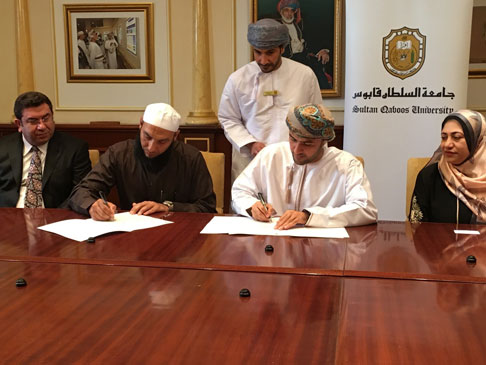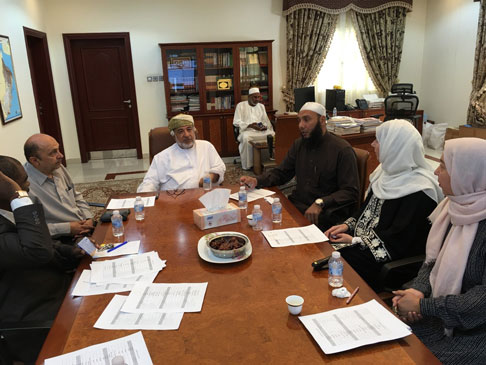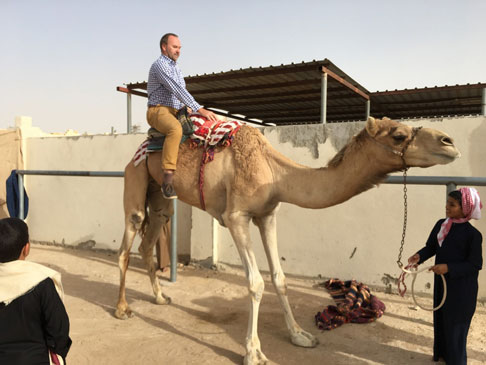My name is Mohamad Abdalla. I am a Professor of Islamic Studies and Director of the Centre for Islamic Thought and Education (CITE) at the university of South Australia.
I applied for the CAAR Speakers funding in 2016 and 2017. I was successful in both rounds. The purpose of the funding was to build bridges of understanding with selected Arab nations through academic engagement. In 2017, I visited Qatar, Oman and the UAE. In 2019, I visited Qatar, Oman and Kuwait. The University of South Australia was supportive of the trip and funded the travel of other academic staff in leadership positions.
The trips were exceptional and achieved their intended aims and more.
Academically, the CAAR-funded trip helped us sign Memorandum of Understandings with Sultan Qaboos (SQU, Oman) University and Qatar University. These led to established academic collaborations in the form of joint conferences, research collaborations and secured three fully sponsored PhD students from Oman. Further, three academic scholars from SQU have become adjunct academic staff with CITE. The CAAR-funded trips helped raise the profile of Australia, South Australia and UniSA in these countries and has generated wide interest among students to consider Australia as a destination of study. In short, these trips have helped enhance our academic collaborations and engagements widely in the Middle East. Personally, the trips helped me to connect with a wider network of scholars and opened potential collaboration of great value.
Culturally, the CAAR-funded trips helped my academic colleagues who have not travelled to the Middle East to appreciate the cultural, ethnic and religious diversity in Qatar, Oman, the UAE and Kuwait. They were exposed to a very positive image of the Muslim and Arab peoples in ways that challenged previously held pejorative views. The trip created a sense of appreciation of the 'other' and created rich experiences. Importantly, the trip helped us explore the natural beauty found in these countries and appreciate their long-standing historical heritage. The people were gracious and exceptionally hospitable.
After one of the meetings held at Qatar Foundation, we were invited to a private residence of a Qatari gentleman. To our surprise, when we got to his house we found that he owned more 100 camels and a number of them were racing camels. My colleagues and I got to experience local Qatari hospitality, watch a live camel race, ride camels, and drink fresh camel's milk. We were then invited to the local mosque followed by local Qatari lunch. The experience had a profound impact on us, especially colleagues who have never travelled to these countries.
The funding application and the trips were without any obstacles. In fact, everyone was helpful, generous and hospitable making the application process and the trips delightful.





